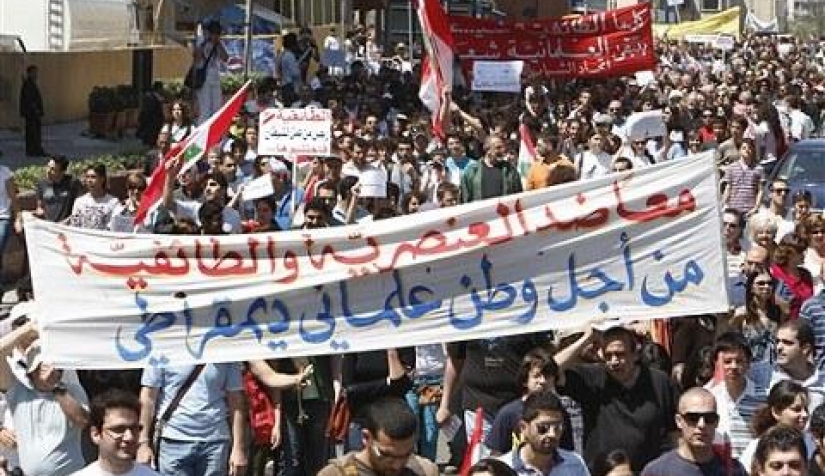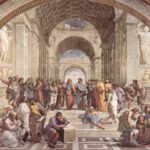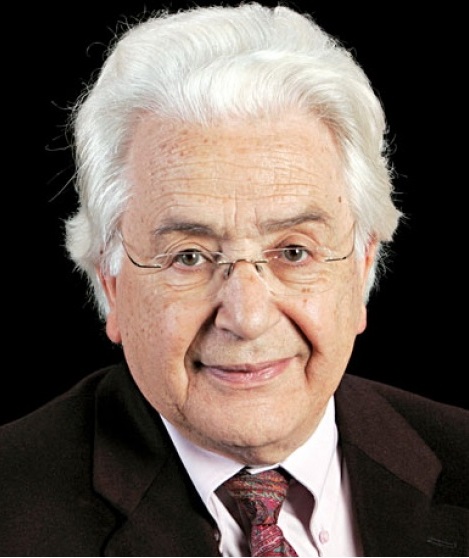
The thinker Mohammed Arkoun initiated a pioneering project in intellectual circles, both Arab-Islamic and Western - a project that explicitly defended the values of modernity in its scientific and intellectual rather than ideological dimension. He possessed a foundational epistemological awareness that set him apart from any preoccupation with questions of technical modernisation stripped of their intellectual reference point. This epistemological awareness of modernity pitched Arkoun into a protracted struggle against two closed-off ideological trends that challenge the values of modernity and enlightenment.
HE FACED, ON THE ONE HAND, ideologised, Western orientalist thought that undervalues the Arab-Islamic civilizational process, and waged an extended struggle against orientalist/colonial forces within the campuses of the most prestigious of European universities – the Sorbonne.
On the other hand, he faced what he called the ‘jurisprudential orthodoxy’ within the Arab-Islamic cultural system that fights against the values of reason and enlightenment, and he waged a similar struggle against the jurisprudential (fiqh) institution and currents of political Islam that ideologize religion and exploit it for non-spiritual purposes.
In this spirit of dual-criticism, Arkoun managed to establish a new research tradition that was free of the mess of ideology – which he termed ‘applied Islamology’. His was a scientific quest concerned with building an alternative thesis to classical Orientalism which dealt with the Islamic arena from a Eurocentric perspective. In the perspective of this new study Arkoun marched headlong into an explosive intellectual minefield, maintaining his characteristic intellectual sobriety and without paying attention to any of the symbols of ideological falsification, whether in the Western world or in the Arab-Islamic world.
We mentioned that Arkoun entered an intellectual minefield, and by that we mean the experimental arena into which he chose to apply his interpretive model. It was an explosive minefield, certainly, both in the Western arena for the large part, or in the Arab-Islamic arena. Through his scientific research on the historicity of the separation between the religious/spiritual component and the worldly/material component, Arkoun discovered that the separation took the form of two separate dimensions: an epistemological dimension that he called laïcité and an ideological dimension that he termed laïcisme.
Arkoun’s was a new research tradition free of the mess of ideology
At the level of the cognitive dimension, Arkoun asserted that it was an original intellectual and social dimension marking the movement of European religious reform, and that this dimension was the result of purely objective jurisprudential initiatives by means of which religious reformers such as Calvin and Luther sought to bring about a transformation in spirituality and values within the religious system in order for a similar transformation to take place at the level of thought.
This was in the context of bringing about the desired change at the practical level – politically, economically and socially. This is perhaps the achievement of Western modernity, where religious rationalization had an influence on the level of intellectual values, as well as on the practical level. This was analysed with rare scientific acumen, by the thinker Max Weber in his work The Protestant Ethic and the Spirit of Capitalism.
At the level of the ideological dimension, Arkoun confirmed that it was an emergency political dimension that marked the course of the struggle between ideological currents and the Church, and that this manifested itself in two different directions, albeit complementary in their ideological perception:
1- In the French ideological current it was associated with the revolution against the clergy in their role as representatives of the Church’s authority to impose their hegemony over the state and society. This made the reaction against religion a violent one, since it was marginalised in civil life as a result of strict decisions imposed by the state over its citizens and institutions.
2- There was also the ideological trend associated with Marxist ideological literature, which all countries of the eastern camp drew from – from the Soviet Union, to Eastern Europe, to Latin America, and some Arab communist parties. Within in this ideological literature secularism was held to be a denial of the religious component, which was considered – to adopt the Marxist coinage – the opium of the masses, drugging them and preventing them from engaging in the struggle against exploitation and slavery.

Suggested Reading
Mohammed Arkoun insisted on a ‘decisive treatise’, one between the chalk and cheese of the cognitive and the ideological, by studying and analysing the historical background to the separation that took place between the material component and the spiritual component. There is an urgent need for sorting this out if we wish place the epistemological dimension of secularism on a firm foundation by solidly rooting the original, pioneering and scholarly traditions in religious ijtihad, so as to achieve a harmonization between the spirit of religion and the changing nature of the times. There is also an urgent need to lay siege to every ideological tendency that seeks to invest in combatting religious values merely in order to achieve ephemeral ideological aims.
Mohammed Arkoun was an original thinker and masterful wielder of his intellectual tools. He retained an open door to various fields of knowledge, and was obsessed with reserving a seat for the Arab-Islamic intellectual model within the global intellectual arena.
This is what he established in his pioneering book Arab Humanism, In which he made comparisons with the Arab-Islamic humanist/enlightenment model, in the midst of a dogmatic, orientalist, academic milieu that looked upon the Arabs as camel-herds and tent-dwellers!
Main image: Demonstration for secularism, Lebanon April 2010.

